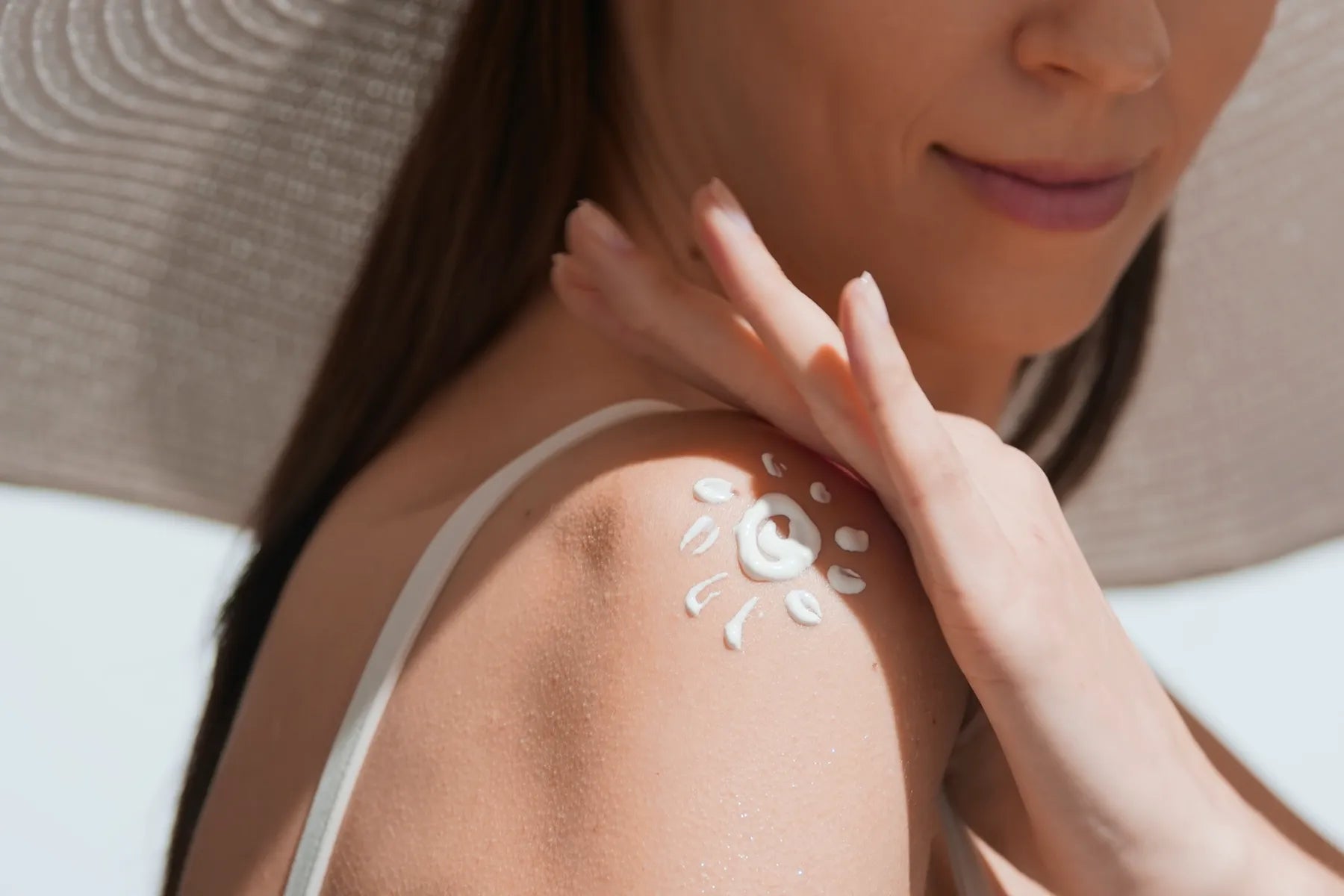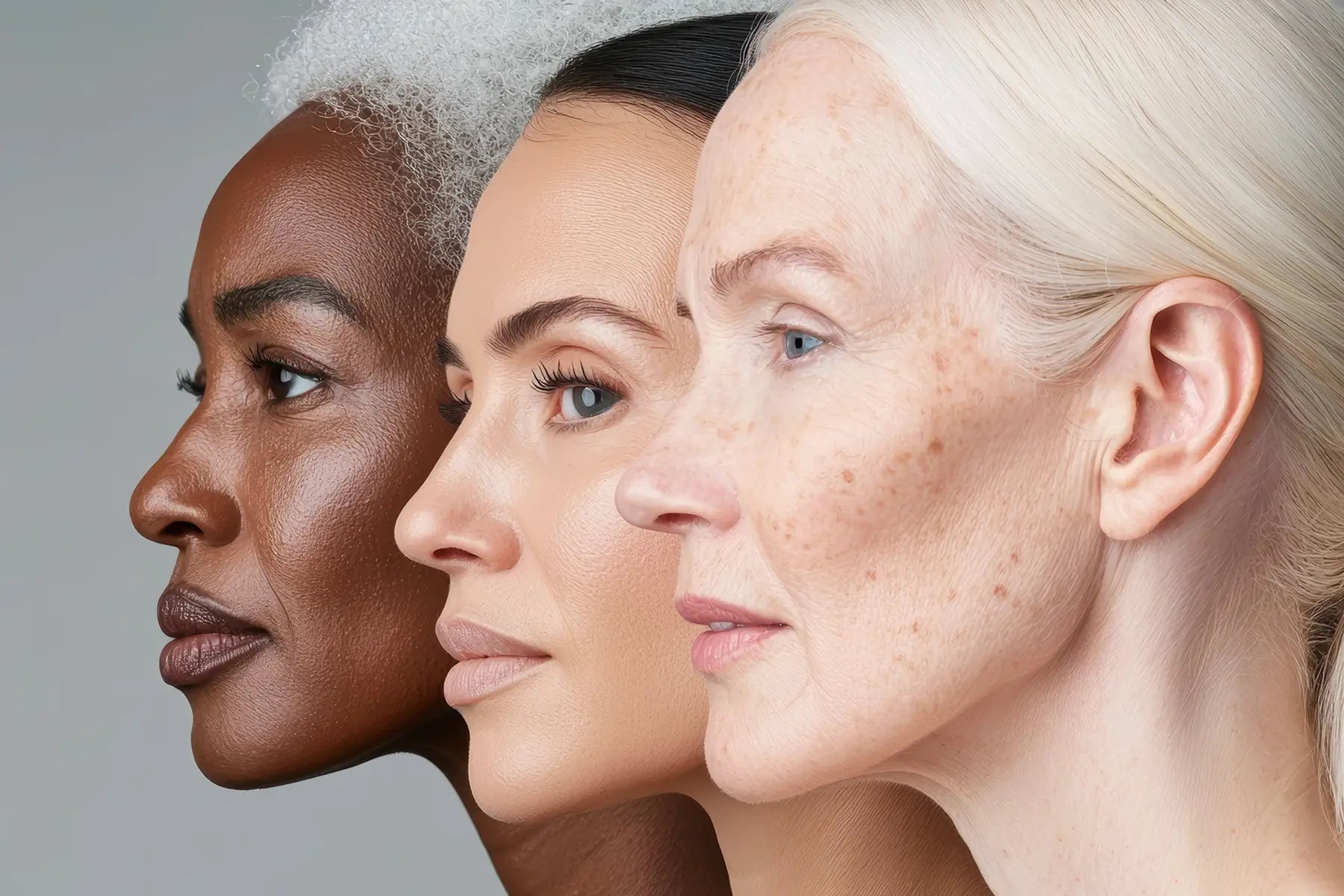There is a difference between sensitised and sensitive skin. When you say, I have sensitive skin, it simply means your skin is a little bit more reactive to products than average. If your skin is sensitised, it may be because it has been exposed to an irritant. For example, using a new washing detergent may irritate the skin, and you might not even realise the reason why. You might just think, Oh, why is my skin so itchy? This is sensitisation, and the feelings will go away as soon as you stop using the irritant.
–––––––––––––
With countless skincare products targeting what marketers call sensitive skin, you may be wondering: Is my skin truly sensitive, or has it become irritated due to external factors? Good question! Austin Skin wants you to understand the difference between sensitive skin and sensitised skin, as this is crucial for choosing the right products and achieving a healthy, comfortable complexion.
Sensitive Skin and Why You Have It
Think of sensitive skin as a baseline state. If you experience reactions like stinging, redness, or dryness regularly, even with mild products, you likely have sensitive skin. It is often genetic, and a life-long condition influenced by:
- Thinner skin barrier: This barrier protects your skin from irritants, but people with sensitive skin may have a naturally thinner one, making them more susceptible to reactions.
- More reactive nerves: Those with sensitive skin have hypersensitive nerve endings, leading to an exaggerated response to certain stimuli.
- Immune system factors:Some believe sensitive skin may be linked to a more reactive immune system that misinterprets harmless substances as threats.
Sensitised Skin and What Causes It
Sensitised skin, on the other hand, is a temporary state caused by various triggers such as:
- Harsh ingredients: Products with fragrances, alcohol, or exfoliating acids can irritate the skin barrier, leading to sensitisation.
- Environmental factors: Sun exposure, wind, extreme temperatures, and pollution can damage the skin barrier and make it more reactive.
- Lifestyle habits: Frequent hot showers, scrubbing, or neglecting your skin can also contribute to sensitisation.
- Medication or immunotherapy: Both can compromise the skin barrier and cause skin sensitisation. This often clears up when the medication or treatment is stopped however some treatments such as radiotherapy may permanently alter the skin.
Signs and Symptoms
It can be hard to tell what kind of skin problem you may be experiencing. Both sensitive and sensitised skin can make themselves known with:
- Redness: Flushing, burning, or general inflammation are common in both cases.
- Stinging or itching: A tingling, uncomfortable sensation might accompany both scenarios.
- Dryness or flakiness: A compromised skin barrier can lead to dehydration and flaky patches in both types.
There are, however, ways to sort the two:
- Onset Reaction Time: Sensitive skin reactions are typically immediate, while sensitised skin might take time to develop after exposure to a trigger.
- Consistency: Sensitive skin usually reacts to various products, while sensitised skin might react only to specific triggers.
- Trigger identification: If you can pinpoint a recent change in your routine or an environment that coincides with your skin reaction, it's likely sensitisation.
Finding Solace: Tailoring Skincare Regimes for Both
While the root causes differ, both sensitive and sensitised skin require gentle care to look their best:
- Choose fragrance-free, hypoallergenic products: Look for products formulated specifically for sensitive skin, avoiding harsh ingredients.
- Make It Easy: Stick to a few essential steps such as a gentle cleanser, moisturiser, and sunscreen to minimise potential irritants.
- Focus on barrier repair: Ingredients like ceramides, hyaluronic acid, and niacinamide can help strengthen the skin barrier and improve its resilience.
- Be mindful of sun protection: UV rays can exacerbate problems with sensitive and sensitised skin. Use a broad-spectrum SPF 30 or higher daily, even when the sun isn’t shining.
Caring for the Skin You’re In
Patience is key. Both sensitive and sensitised skin need time to heal and respond to new routines. By understanding the distinctions and adopting the right skincare regimen, you can navigate the complexities of sensitive vs. sensitised skin and achieve a healthy, comfortable complexion. If your concerns persist or worsen, come and see us.







